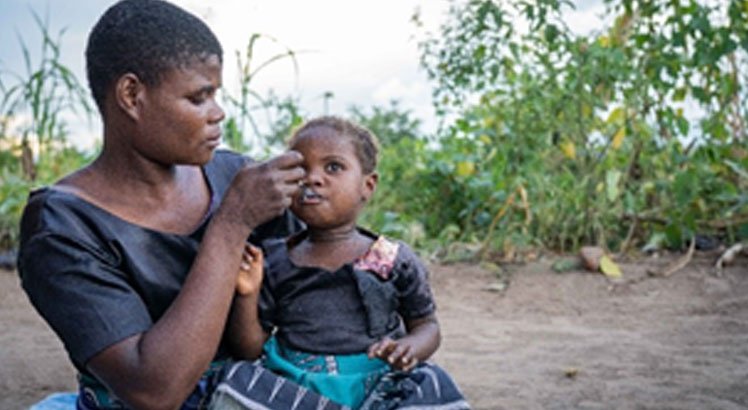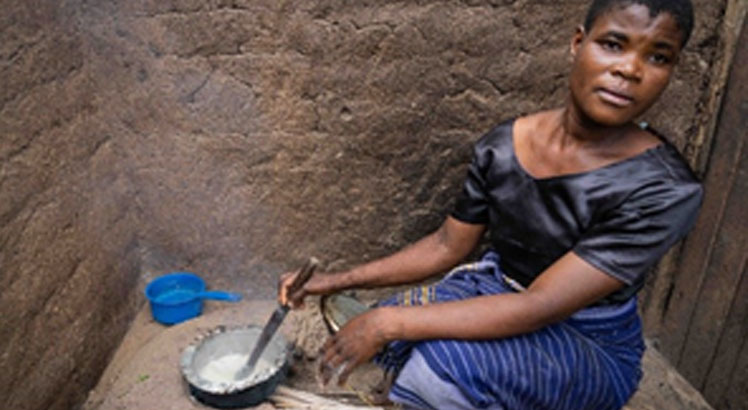A porridge fit for a princess

“Using goat’s milk in porridge was a new idea for me, but nowadays my children enjoy the taste and my youngest daughter, Princess, is growing well,” says Linny Malidade, a mother of five who has started to supplement her child’s porridge with goat’s milk.
29- year-old Linny Malidade who lives in Maluwa village, in Malawi’s Phalombe District, joined WFP’s integrated resilience programme in 2019 and received four goats as part of a pass-on scheme. WFP’s livelihoods package is comprised of several components seeking to support food and nutrition insecure farming communities. Key components of the livelihoods package include food assistance for assets (FFA), participatory integrated climate services for agriculture (PICSA), Village Savings and Loans, farmers insurance against shocks and smallholder agriculture market support (SAMS).
Linny is part of such a community. Her two-and-a-half-year-old daughter, Princess, was at risk of stunting as a result of this insecurity. “She used to fall sick all the time. I since joined care group sessions and I learned about handwashing and diet diversity using local vegetables. I also got some support to start a backyard veggie garden and build an energy-saving stove for my kitchen”.

Stunting is a sign of chronic malnutrition, and remains high in Malawi at 37%. Stunting cannot be cured but it can be prevented. WFP works with 128,000 farmers in Malawi to tackle the underlying causes of malnutrition, encouraging families to develop vegetable gardens to access a diversified diet and supporting care group volunteers to share knowledge on nutrition best practices. Owning and breeding small livestock, like chicken and goats, is also promoted with training on animal welfare and breeding.
“Nowadays, my backyard garden is a source of vegetables throughout the year. On top of this, I have learned how to cook them without losing their nutritional values,” says Linny with a proud smile on her face.

In 2019, Linny received four female goats. Their offspring will be given back to the community through a pass on programme when they grow up. While it was new for her to use goat milk, she was taught how to mix it in her children’s porridge. Linny cannot afford to buy regular cow’s milk from the store, so the milk provided by her goats is an essential source of added nutrition.
Linny’s goats aren’t just good for milk! Their dung is also added to manure, which acts as an effective fertiliser for her backyard garden. Since beginning the programme, Linny has seen an increase in her land’s original yield of seven bags of 50kg of maize. “My veggie garden, which provides my family with a variety of vegetables, is doing better since learning to use goat dung for manure as a natural fertilizer,” she said.
In early childhood, undernutrition has negative life-long and intergenerational consequences. Undernourished children are more likely to require medical care because of under nutrition-related diseases and deficiencies. This increases the burden on public social services and health costs incurred by the government and communities.
Nutrition-sensitive interventions tackle the underlying causes of malnutrition, which includes a lack of access to dietary diversity, and water, sanitation and hygiene (WASH) services. Families are taught to cultivate homestead gardens to boost households’ access to a diversified diet. Small-livestock production can also be introduced with training on animal welfare and breeding.
WFP’s livelihoods programme, with the support of its development partners (USA, United Kingdom, Germany, Flanders and Switzerland), aims to improve vulnerable people’s ability to adapt to climate change through various interventions.





